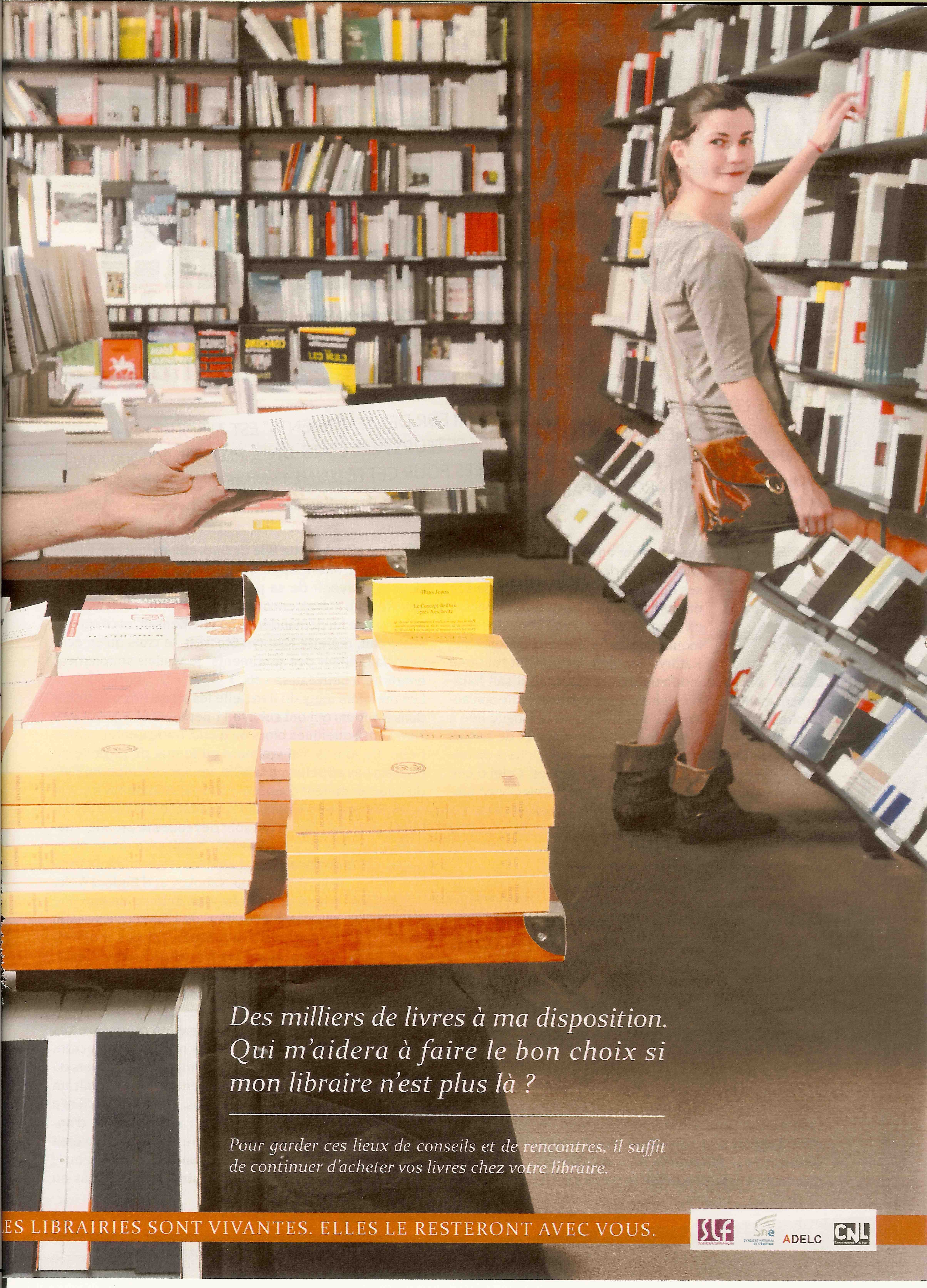On holiday in France last week, I spotted an advert in Madame Figaro encouraging readers to continue to shop at their local bookstore. “With millions of books to choose from, who will help me decide if my bookshop is no longer there?” runs the copy.

Evidently, online sales are endangering bricks and mortar bookshops there too. What’s interesting about this familiar tale of decline – Borders in the US, Waterstones struggling in the UK – is that it’s always portrayed as the result of changing consumer habits. However, publishers play a part too. They choose how big a discount from the cover price of a book to give to different retail outlets. A combination of the market power of the biggest retailers – Amazon, some supermarkets – and the lower cost of distribution to their centralised warehouses means that publishers have always given bigger discounts to these outlets. The obvious consequence is that small bookstores can’t match the prices offered by their big competitors. As a particular title is the same everywhere, it’s no wonder consumers have changed their habits. If physical bookstores matter to publishers in the long term, as all publishers tend to claim, the publishing industry will need to change its habits too.
Meanwhile, here is the lovely bookshop in Toulouse which benefited from a few of my euros.

The Ombres Blanches bookstore in Toulouse
